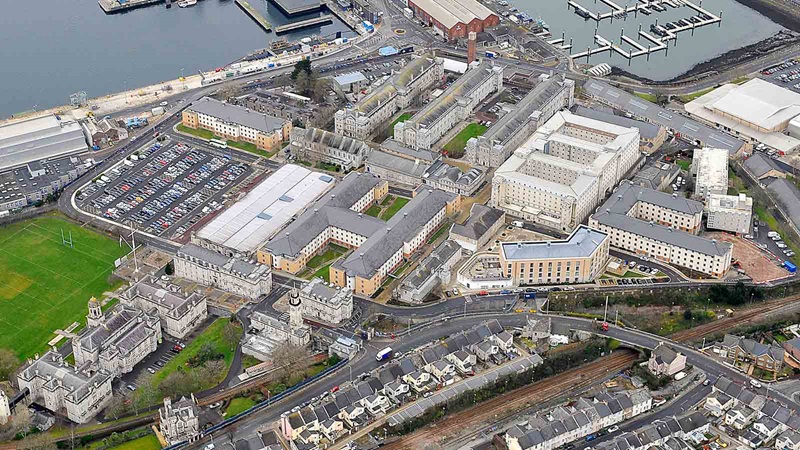Stepping forward to meet the challenge
Thrown into sharp focus by the recent conflicts in Ukraine and Gaza, the UK’s military forces remain among the most responsive and supportive in the world. Whether it’s the ships and surveillance aircraft sent to shore up security in the eastern Mediterranean or the billions of pounds of military aid given to boost the Ukrainian defence, the message is clear, and crystallised in the words of the British Army: ‘we step forward and meet every challenge’.
Over the past four years, Mace has been working closely with a UK defence sector client and likeminded partners to tackle a challenge of a different making. Here, David Martin, Head of Defence and National Security at Mace, draws on his observations to explain how an integrated team is crucial to taking a forward-thinking approach that reflects an evolving defence estate challenge.
Create a high performing team at the outset
Simply put, defence is about brave, intelligent and committed people protecting and helping other people in need. Given the pressures and challenges service personnel face, it is only right they have the buildings and infrastructure they not only need but deserve.
To achieve this, you need the right people in place, behaving in the right way, to deliver a modern and fit-for-purpose defence estate. A skilled central team, with a track record in delivering major infrastructure and development, both within and outside the defence sector, is an obvious building block. Add to this ex-military people, who also possess these skills and understand the needs of the customer (having once been one), along with a trusted and integrated supply chain, and you incorporate invaluable insight into everything from the most basic individual needs to core operational considerations.
Perhaps what’s most important, however, is how these are bound together. And that comes from a shared culture. The how that sits beside the what. The values and behaviours that set the tone for everything that follows. This works best when the client and its partners establish this together, collaboratively setting the mission and identifying the ‘one-team’ behaviours that will see it met in the most effective way. If this is done with people in mind, the result is a fair environment that allows everyone to thrive. And that creates a high-performing team.
Maintaining this environment across a programme requires continued effort, but the reward is considerable. When people enjoy their work and see opportunities for growth, they stay. That means consistency of service, strengthening of culture and retention of knowledge.
Sharing knowledge to leave a legacy
Knowledge retained is knowledge that can be shared. This is a central tenet of the integrated team’s approach. While we have people who understand defence and national security – not least ex-service personnel – we acknowledge that the client organisation is closest to the needs of the estate and, ultimately, sets the long-term agenda.
And so, while delivering service excellence in the here and now is the foremost consideration, leaving a lasting legacy in the form of an upskilled client organisation presents the most sustainable future for the nation’s defence estate.
It’s an estate undergoing continual change, largely because the way we protect people both at home and abroad is not the same as it used to be, and it will change again in the future as new technologies, opportunities and threats emerge.
This evolving picture is why, in the context of creating a fit-for-purpose estate, drawing on the experiences of major construction and infrastructure schemes from other sectors and around the world is vital. These are often sectors for which ‘building things’ is at the core. It means they are more mature in many of their approaches. Crucially, our client understands that this presents a considerable learning opportunity by working with partners who have that experience.
In a consultancy space, it might be learning the lessons of effective procurement strategies or building on the successes of a digital command centre in the rail sector, and in a construction sense it could be implementing the use of modern methods of construction to save money, reduce waste and speed up delivery. The scope is considerable.
Putting the mechanisms in place to ensure knowledge transfer is, of course, essential, but my experience is that this falls into place naturally if the right culture and behaviours are established early on.
The defence sector is, by necessity, forward-looking and lesson-learning. This mentality serves it well as it establishes an estate that’s fit for now and the future. The appetite to be at the leading edge of infrastructure delivery is apparent and a willingness to work with talented partners is how our client is stepping forward to meet the challenge.









